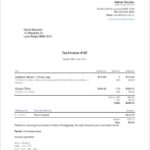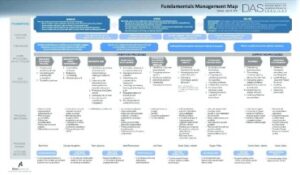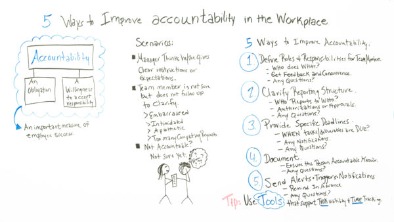Content

Among other things, the proposed regs clear up lingering confusion regarding whether meals are considered entertainment and, therefore, generally nondeductible. In a letter to the IRS dated April 2, 2018, the AICPA had requested that the IRS provide immediate guidance on the TCJA change to Sec. 274. The TCJA eliminated https://quick-bookkeeping.net/ all business deductions for «entertainment, amusement, or recreation.» (IRC Sec. 274). This includes most things you’d think of as entertainment, such as entertaining at night clubs, cocktail lounges, theaters, country clubs, golf and athletic clubs, sporting events, and on hunting, fishing, or vacation trips.

Now, they are subject to the same recordkeeping rules as any business deduction. This means you are still supposed to have records of the amount and business purpose. But, if you lack adequate records, you can ask the IRS and/or Tax Court to permit you at least a partial deduction under the Cohan rule. Under this rule, taxpayers who lack all required records are permitted to make an estimate of how much they have spent. The IRS has discretion to allow such taxpayers to deduct all or part of the estimated amount.
Tax Policy
The Treasury Department and the IRS have issued clarifying guidance that allows businesses a temporary 100% deduction for food or beverages from restaurants. The rules regarding the deductibility of meals and entertainment expenses have changed considerably in the past few years, beginning with new limitations imposed by the Tax Cuts and Jobs Act of 2017. Most recently, Congress temporarily reversed some of the changes with the Consolidated Appropriations Act, 2021. For 2021 and 2022 only, businesses can claim 100% of their food or beverage expenses paid to restaurants as long as the business owner or an employee is present when food or beverages are provided and the expense is not lavish or extravagant under the circumstances. Under Internal Revenue Code section 274, meals provided to employees while traveling away from home are generally nondeductible unless the employee and employer can substantiate the expenses in a manner that satisfies requirements under the section 274 regulations.

The entertainment disallowance rule may not be circumvented through inflating the amount charged for food and beverages. Take the time before tax season to review all business meal and entertainment expenses and ensure they are categorized properly and have Irs Guidance Clarifies Business appropriate matching documentation. This is an easy way for businesses to save money on taxes while supporting the struggling restaurant industry, and a strong motivator to hold more employee parties and gatherings as 2021 winds down and into 2022.
Sign Up For Our Newsletters
Any expenses falling within the exceptions described in numbers 1, 5, or 6 will be deductible subject to the 50% limitation, and any expenses falling within the exceptions described in numbers 2, 3, 4, 7, 8, or 9 will be 100% deductible to the taxpayer. CRI is a member of PrimeGlobal, a worldwide association of independent accounting firms and business advisors. PrimeGlobal does not and cannot offer any professional services to clients.

Our team of experts will work with taxpayers to maximize the benefits these changes can provide to taxpayers’ businesses. The IRS also provides examples of what does and does not constitute deductible meal expenses. Additionally, each example assumes that the taxpayer and the business contact are not engaged in a trade or business that has any relation to the entertainment activity.
Services
The information reflected in this article was current at the time of publication. This information will not be modified or updated for any subsequent tax law changes, if any. • Lunch with customer, client or employee without a business purpose/discussion.
- Prior to TCJA, taxpayers could deduct 50 percent of qualified business entertainment and meal expenses.
- A deduction was permitted only if 1) the expense wasn’t lavish or extravagant under the circumstances, and 2) the taxpayer was present when the food or beverages were furnished.
- When traveling for work, instead of keeping receipts and records to substantiate business meals, taxpayers can elect to use the per diem rate, a daily allowance for business expenses.
- The deduction for the food or beverage is still required to be a business meal that is not lavish or extravagant under the circumstances, and the taxpayer or an employee of the taxpayer is required to be present for the meal.
- Expenses includible in the gross income of a recipient, who is not an employee of the taxpayer, as compensation for services rendered or as a prize or award.
Just in case you’re audited, you should also have digital breadcrumbs proving your meals were actual business expenses — a calendar event, an email thread, some notes from your discussion. Should the reader have any questions regarding any of the news articles, it is recommended that a Doeren Mayhew representative be contacted. • Meals with people related to the business such as clients, customers and vendors provided that there is a business purpose or some benefit to the business will result, the taxpayer is present, and the amount is not lavish or extravagant. Ordinarily, you may only deduct 50% of the total cost of a business meal. If you go on a business trip with your family, you may deduct meals for yourself, but not for your spouse or other family members. The only exception is if your spouse or other family member is your employee and needs to be on a business trip to help you.
For 2021 and 2022, the business meal deduction is 100 percent, but with a few caveats. PKF O’Connor Davies is the lead North American representative of the international association of PKF member firms. PKF International is a network of legally independent member firms providing accounting, tax and business advisory services in more than 400 locations in 150 countries around the world. For example, if an employee purchases prepared items such as pizza from a convenience store and eats the food items immediately after, the purchase would not be eligible for a 100% deduction, since the purchase was made from a convenience store.